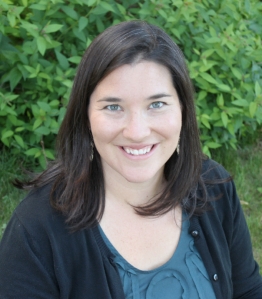 Today, we continue our popular series “Ask a Therapist” with one of our therapists, Kendra Doukas, MS, LMFT answering one of our most commonly asked questions: “Why is therapy effective?”
Today, we continue our popular series “Ask a Therapist” with one of our therapists, Kendra Doukas, MS, LMFT answering one of our most commonly asked questions: “Why is therapy effective?”
Unconditional Positive Regard: The Key to Connection
I often get asked the question, “Why is therapy effective?” Those of us that are therapists think long and hard about this question. We know that it works because we see the evidence first hand; However, the concrete reason can be (or at least for me was) quite difficult to articulate. Research in “common factors” looks across different models and structures of therapy in an attempt to answer this very question: Why is therapy effective? This research over and over again indicates the “goodness of fit” between clinician and client is a critical factor. I got to thinking, what does this really mean? What can I do as a therapist to improve the chances of a good fit? Is it just some mystical connection that will either be there or not, or is there more to it?
Session after session I started to think more about why and how I am successful with my clients. One day the answer made itself abundantly clear: Unconditional positive regard, a term I had learned long ago in my training. One of the most fundamental human needs is to be truly witnessed by another. For someone to say to us literally or figuratively, “I hear you, I see you, I understand you, and I’m not going anywhere” is incredibly powerful. Imagine a world where every child got a constant message of an adult truly witnessing him or her.
Many of us did not get this message as children, or at least not consistently enough, and still do not get it today. My job as a therapist is to be this missing witness; to send the message that I care about your well-being, no matter what and with no strings attached. Is this not what a healthy partnership provides us? Is this not the ultimate goal of parenting? Is this not what we all seek out in our friendships?
Once I had this eureka moment, it became the number one goal in my therapy and in my life. Please do not misunderstand me and think I am saying that this means we should accept everyone’s choices and behaviors unconditionally. Challenging my clients unhealthy choices and behaviors is critically important to helping them grow and change. I would not be a good therapist if I just smiled and nodded and told my clients they were perfect. Unconditional positive regard comes into play here, too; I am able to challenge my clients on anything I need to because they are secure in the knowledge that it is coming from a place of love and acceptance. Since my clients know that I genuinely care about them, when I challenge them on something they are much less defensive and are able to really hear my feedback.
In a world where space between us seems to grow wider and the true connections between us seems to be dwindling, it makes sense that many of us feel a huge lack of connection. There is good research to suggest that humans have been so successful due to our use of social connections, playing an even more critical role in our evolution than our big brains or critical thinking skills than we once believed.
Let’s do more of what we as a species do best. I challenge each of us to work to truly bear witness to one another and send the vital message of unconditional positive regard.
~ Kendra Doukas, MS, LMFT
Kendra is a therapist at The Catalyst Center. Her specialties include:
Kendra Doukas, M.S. LMFT can be reached by calling the main office at 720-675-7123 or by emailing us directly atCatalystCenterLLC@gmail.com

One thought on “Ask a therapist: “Why is therapy effective?” (answered by Kendra Doukas, MS, LMFT)”